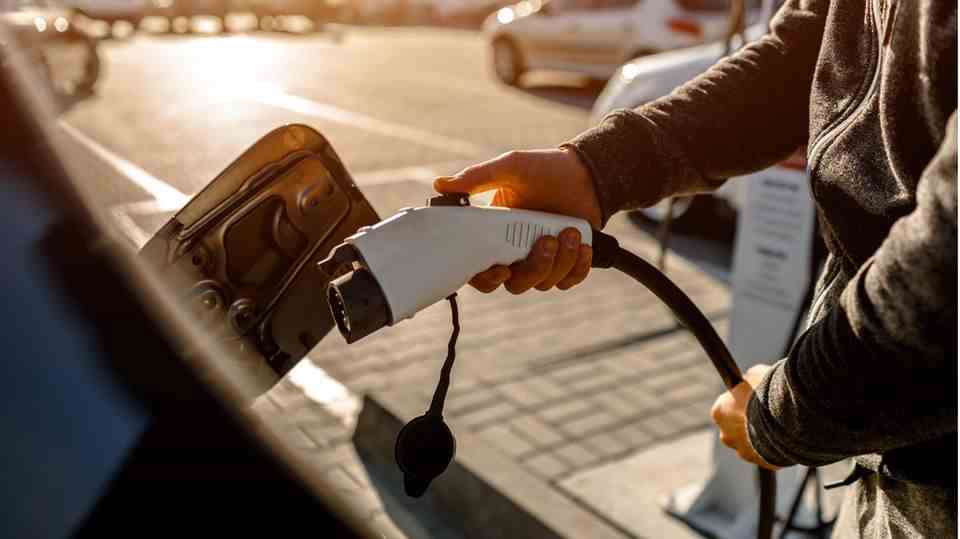Purchase bonus for electric cars
The environmental bonus works, but is not enough – experts are calling for a CO2 tax and charging stations
The federal government is pursuing the goal of registering 15 million electric cars by 2030. The environmental bonus should help with this. (icon picture)
© Patrick Daxenbichler / Picture Alliance
The environmental bonus for electric cars has given a strong boost to the electromobility market. In the meantime, every fifth newly registered car is no longer dependent on diesel or petrol. Nevertheless, economic experts are calling for higher CO2 taxes and more charging stations.
The environmental bonus has significantly boosted electric car sales in Germany. From the point of view of the German Institute for Economic Research (DIW), more is needed for a traffic turnaround: stricter limit values, higher CO2 prices and more charging stations. As the institute announced on Wednesday, the gap between combustion engines and battery-electric cars is closing.
Every fifth new car is electric
At the beginning of 2019, two percent of all newly registered cars were still running on electricity, by autumn 2021 it was already more than a fifth. The researchers calculated seasonal and cyclical effects and were able to prove, according to their own account, that this was due to the purchase premiums.
Buyers can get up to 9000 euros for buying an electric car. The premiums are financed by the federal government and the manufacturers.
Environmental bonus boosts electric car boom
“Our analysis shows that purchase premiums for electric cars have an effect. However, in order to achieve the goals of faster market penetration, a large number of other measures are necessary,” said DIW traffic expert Aleksandar Zaklan. Environmentally harmful subsidies would have to be dismantled, the pollutant limits for fleets lowered and fuel charged with a higher CO2 price in the long term.
Because in order to achieve the government target of 15 million electric cars by 2030, 130,000 new cars would have to be registered every month. In 2021, however, there were only 30,000 electric cars per month. From the point of view of the study authors, it is also important to make the purchase of cars superfluous, at least in part, with powerful and reliable buses and trains.



